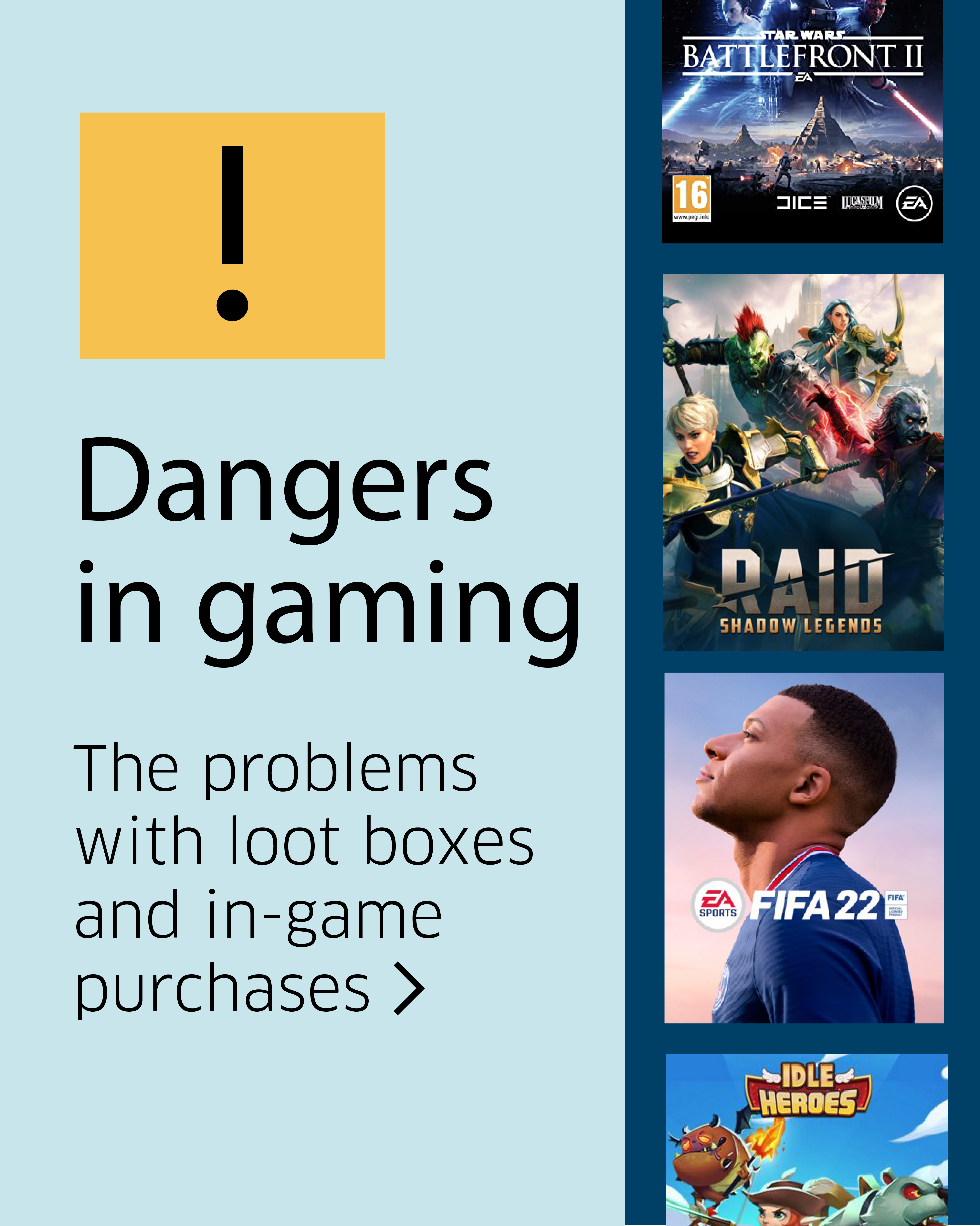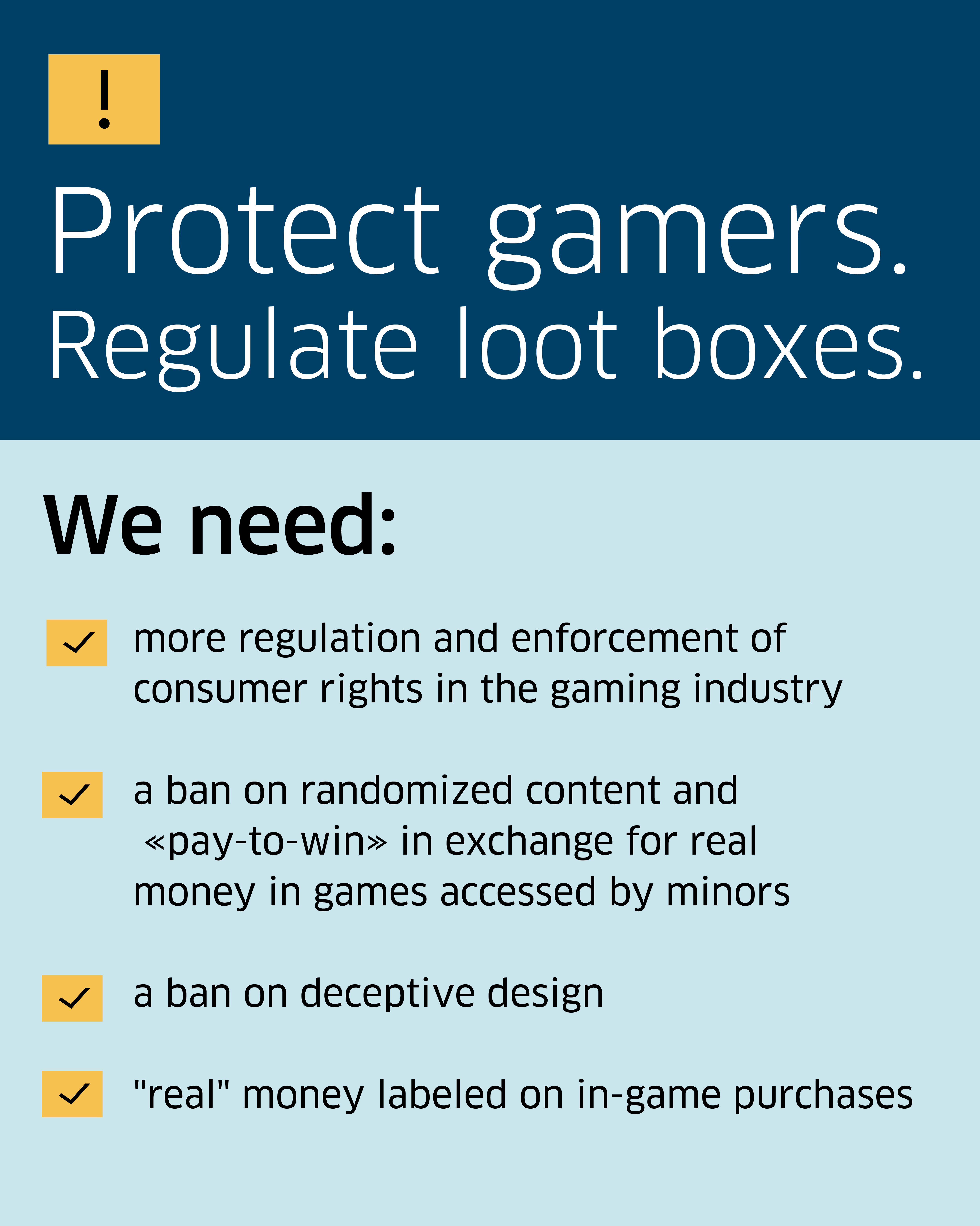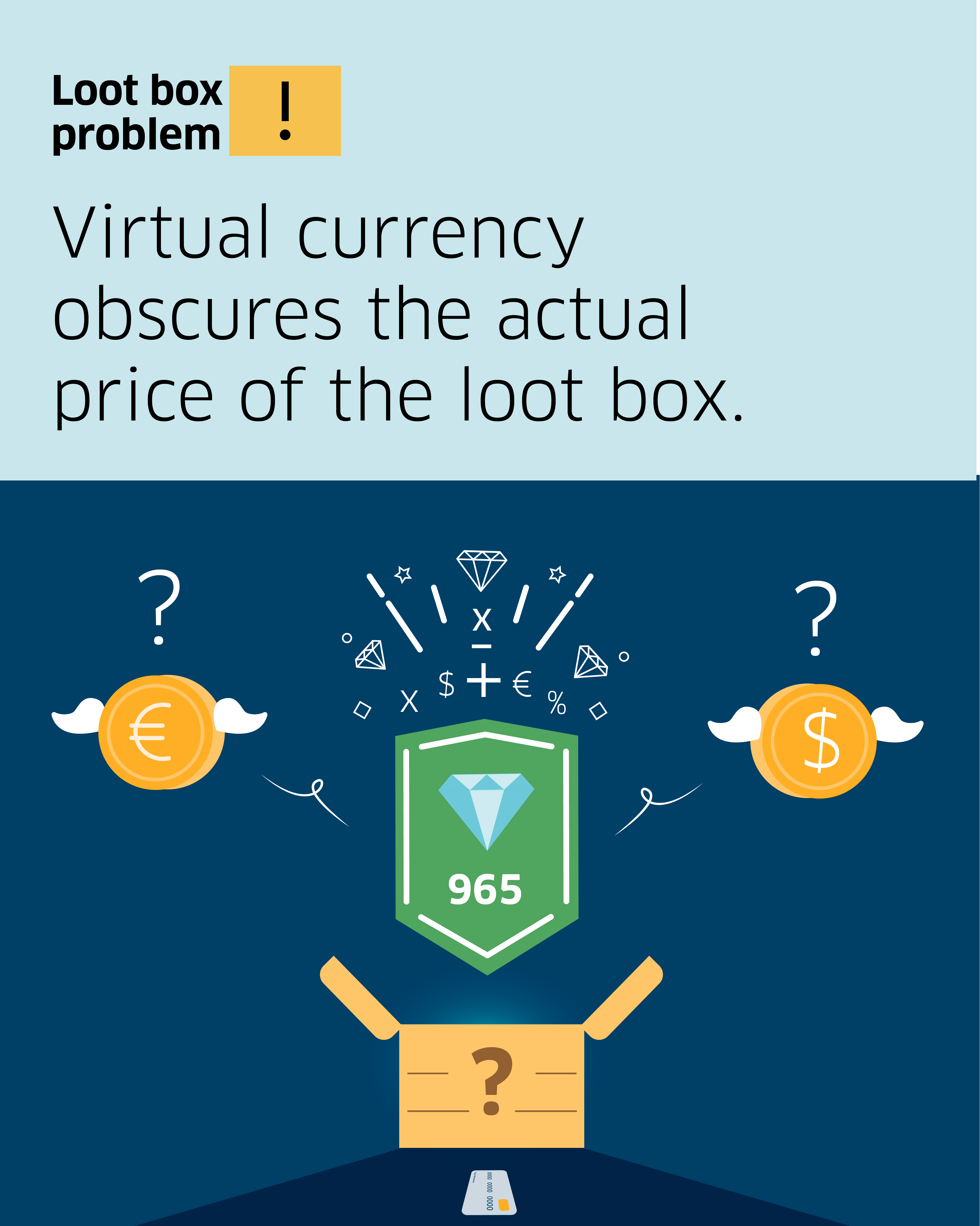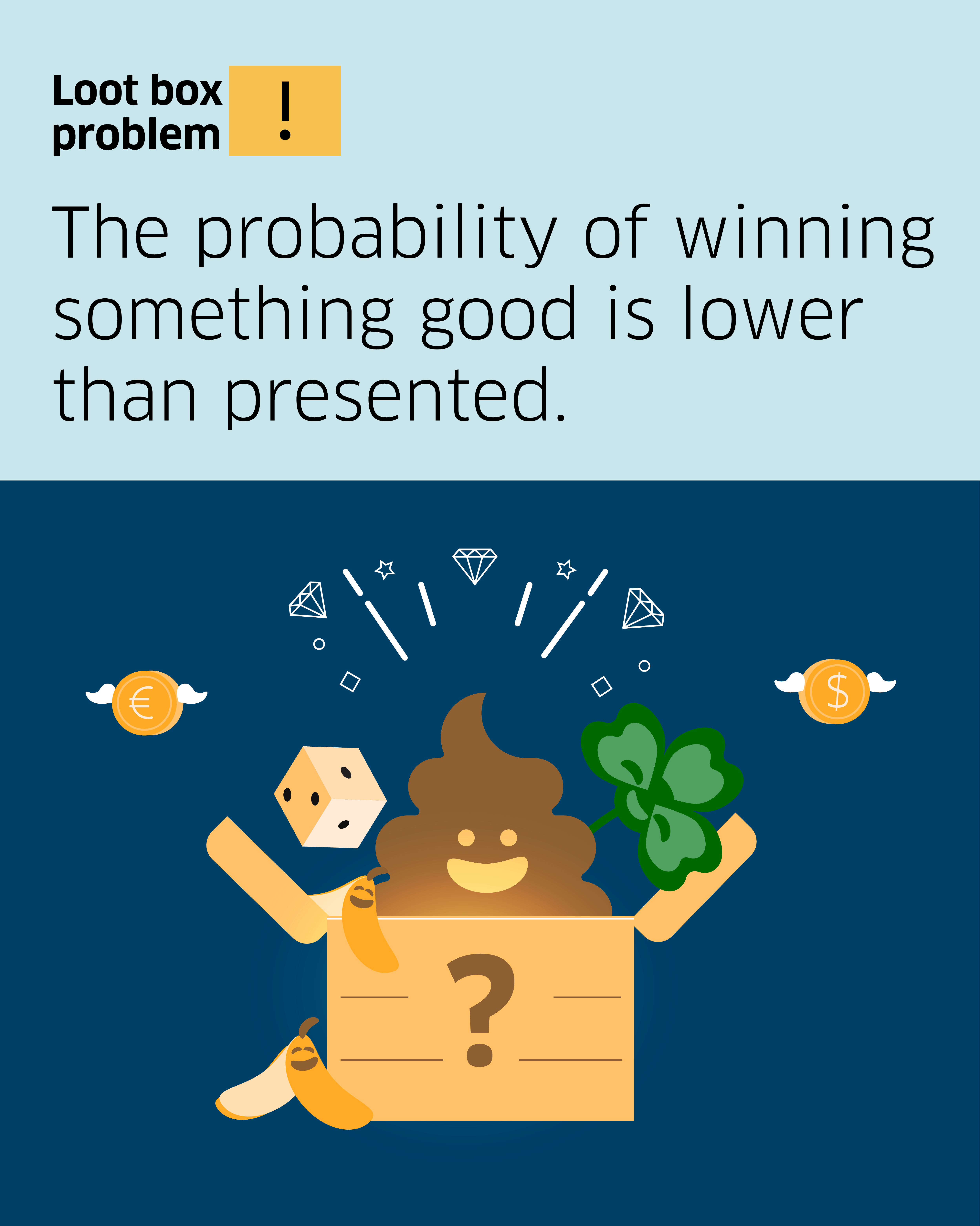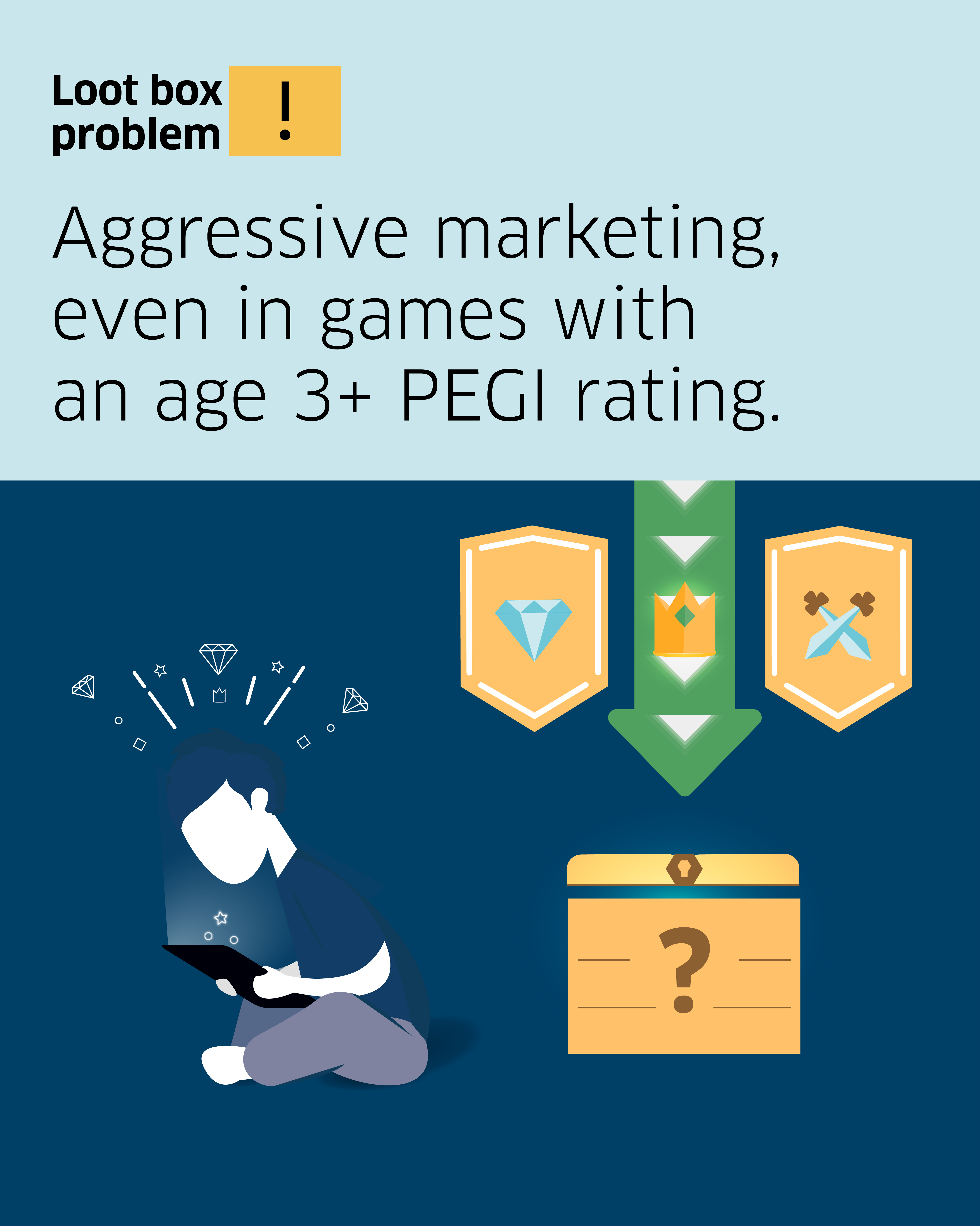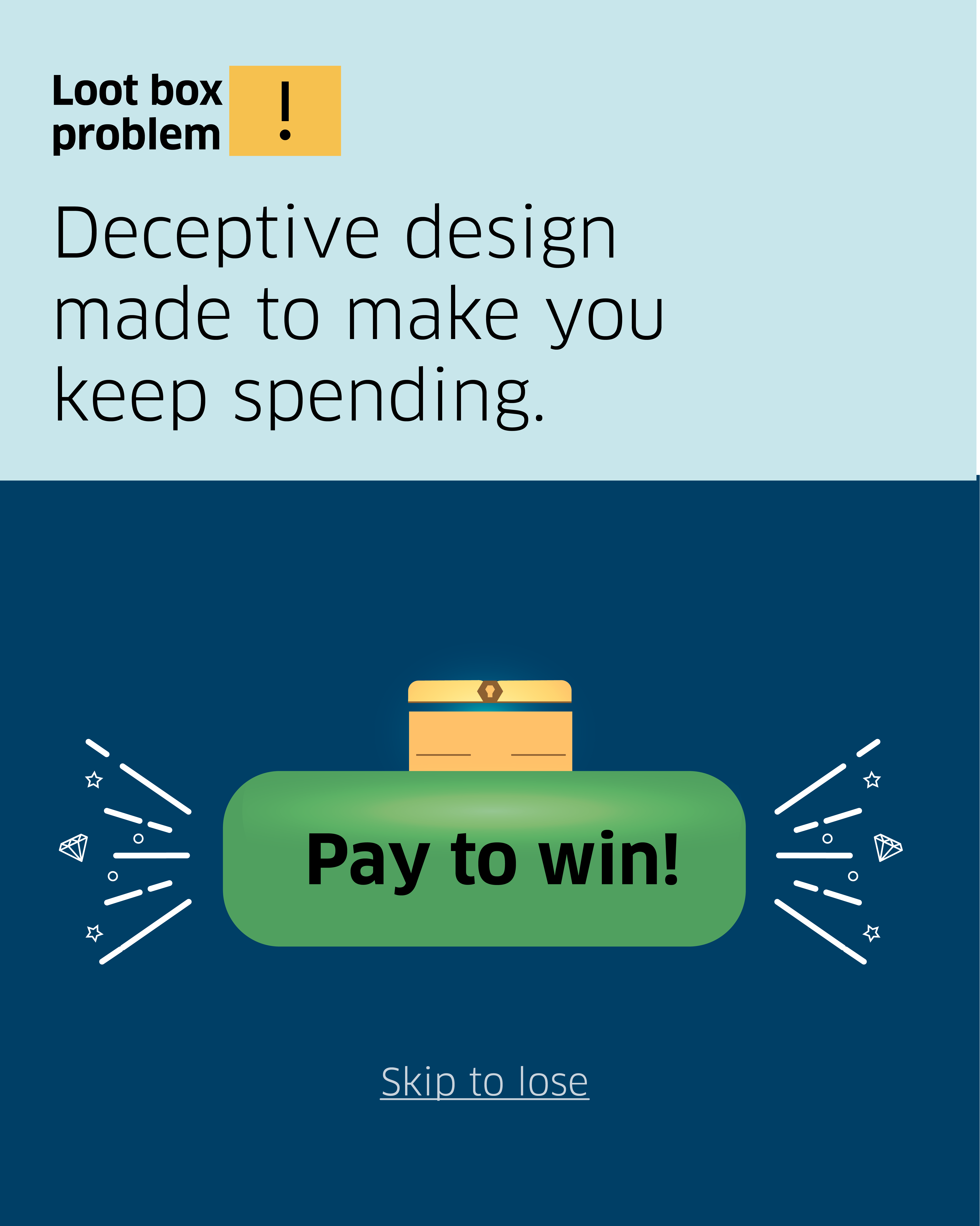Loot boxes: How the gaming industry manipulates and exploits consumers
31. mai, 2022
Deceptive design, aggressive marketing, and misleading probabilities. Loot boxes present consumers with an array of problematic practices. Consumer organizations all over the world are coming together to call for regulation.
The Norwegian Consumer Council (NCC) published the report “INSERT COIN: How the gaming industry exploits consumers using loot boxes” today, and more than 20 consumer groups from 18 European countries are launching a coordinated action asking authorities to act.
Loot boxes are “mystery packages” of digital content in video games which consumers purchase with real money. The contents of loot boxes are randomized, containing in-game content which gives gamers advantages or cosmetic items to use in the game. Consumers have no way of knowing what they contain until they have paid for them.
– Loot boxes have been the source of several controversies already. Through our work we have established that the sale and presentation of loot boxes often involve exploiting consumers through predatory mechanisms, fostering addiction, targeting vulnerable consumer groups and more, says Finn Myrstad, director of digital policy at the Norwegian Consumer Council.

A variety of problematic mechanisms
The report shows how gaming companies utilize a variety of highly problematic practices to increase their own revenue.
– Games manipulate consumers to spend large sums of money through aggressive marketing, exploitation of cognitive biases, and misleading probabilities, says Myrstad.
The report highlights problematic practices, including:
- Exploiting cognitive biases and vulnerabilities through deceptive design and marketing
- Using layers of virtual currencies to mask or distort real-world monetary costs
- Targeting loot boxes and manipulative practices towards minors
An obvious need for regulation
The video game industry is one of the largest entertainment industries in the world, more lucrative than box office movies and music sales. Worldwide, more than 2.8 billion consumers reportedly play video games on a regular basis, including children, teenagers, and adults. The industry has historically generated revenue largely from the sale of video games. Over the past two decades, in-game purchases – in-game sales of additional digital content – have become a major source of revenue for the industry, generating more than USD 15 billion in 2020.
Despite being a major industry, the video game sector has largely evaded regulatory scrutiny. Prevailing business models are technically complex or novel. Video games are considered a niche entertainment market by many authorities.
– Due to the sheer size of the market and the number of affected consumers, national and EU authorities should prioritize regulatory investigations and interventions. We call for a number of measures, including a ban on deceptive design, extra protections for minors, and transactional transparency. Authorities and industry must take responsibility to ensure a safe environment for gamers, concluded Myrstad.
Read the full report here
Maren Van Buren Struksnæs
Kommunikasjonsrådgiver – forbrukerrettigheter og digitale spill
Participating organizations:
- Verein für konsumenteninformation – VKI (the Austrian Consumers’ Association), Austria
- Асоциация активни потребители – Bnaac (The Bulgarian National Association), Bulgaria
- dTest (Czech Association of Consumers TEST), Czech Republic
- Forbrugerrådet Tænk (The Danish Consumer Council), Danmark
- UFC-Que Choisir, France
- Verbraucherzentrale bundesverband – VZBV (The Federation of German Consumer Organisations), Germany
- KEPKA – (Consumers’ Protection Center), Greece
- EKPIZO (Consumers’ Association “The Quality of Life”), Greece
- Neytendasamtökin – NS (The Consumers´ Association of Iceland), Iceland
- Adiconsum (Consumers and Environment Protection Association), Italy
- Latvijas Patērētāju Interešu Aizstāvības Asociācija – Lpiaa (Latvian National Association for Consumer Protection), Latvia
- Consumentenbond, Netherlands
- Forbrukerrådet (The Norwegian Consumer Council), Norway
- Federacja Konsumentow (The Polish Consumers’ Association), Poland
- DECO, Portugal
- Zveza Potrošnikov Slovenije – ZPS (the Slovene Consumers’ Association), Slovenia
- Organización de consumidores y usuarios – OCU, Spain
- Asufin, Spain
- Sveriges Konsumenter (The Swedish Consumers’ Association), Sweden
- Fédération Romande des consommateurs – FRC (The Romande Consumer Federation), Switzerland
